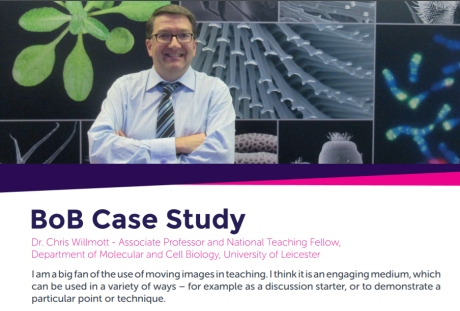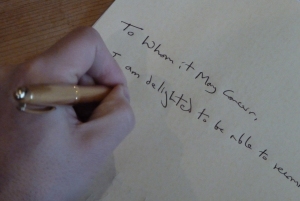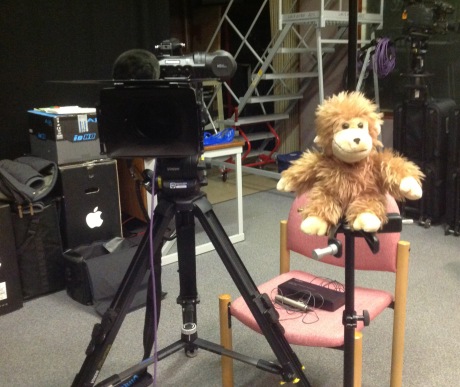I have recently been featured as a case study describing ways in which I use the Box of Broadcasts service from Learning on Screen. The full article can be found here.


I have recently been featured as a case study describing ways in which I use the Box of Broadcasts service from Learning on Screen. The full article can be found here.


Reference writing takes time and effort, do your best to help your referee do the best they can for you
A number of recent events have prompted me to reflect again on the subject of reference writing.
Offering a letter of recommendation, or completing one of the myriad different online forms, is not a trivial task, either in terms of the labour involved or the potential significance of the resultant document. In this post I want to make some suggestions for any students seeking a reference from an academic, regardless of their discipline, which I hope will make the process more effective (and less fraught) for all parties.
1. Ask. Firstly, do ask a potential referee before you offer their name to the organisation seeking the reference. On one level this is common courtesy. However it also does two things to the benefit of the applicant: it forewarns the academic that they need to budget some time for writing a reference and gathering the relevant information (see 3, below); it also gives them the opportunity to suggest a more appropriate referee for the specific job. Unless there are exceptional circumstances, the first person you should ask for a reference is your personal tutor. For finalists or graduates requiring a second academic commendation the next person to ask is usually your project supervisor. Continue reading
As many readers of the Journal of Left-Handed Biochemist will know, I was shortlisted for the UK Bioscience Tutor of the Year in 2012. Due to ill health I was unable to complete the second phase of the application that year and the organisers generously rolled over my application to 2013. In the end I was runner up in the competition, with Prof Tim Birkhead FRS from Sheffield being the winner.
Part of the application required the production of a video (mine is here). I thought it would be fun to let you in on one of the “tricks of the trade”. With all the Richard III excitement at Leicester in the Spring, I only had limited access to video support. Carl Vivian, with whom I’ve worked regularly on a variety of project including the Model Organisms in Biomedical Research and the Power of Comparative Genomics films, was operating the camera. So who was I talking to so earnestly in the interview? Carl’s erstwhile colleague Mr Monkey.

Monkey is an experienced interviewer who has worked previously for Channel 4
The following are notes written for a session I was asked to run with sixth form students about preparing for Med School interviews. I am quite sure there are lots of sensible suggestions that I have inadvertently omitted – please feel free to use the Comments facility to offer your additional advice.
~~~~~~~~~~~~~~~~~~~~~~~~~~~~~~~~~~~~~~~~~~~~~
Your personal statement: You’ve got an interview! Apart from anything else, that means you must have done something right in your personal statement. Even though it may be months since you wrote it, it is important that you re-read it thoroughly about a week before the interview to remind yourself what you said and then reflect on what questions this may lead onto. In particular, think about: Continue reading